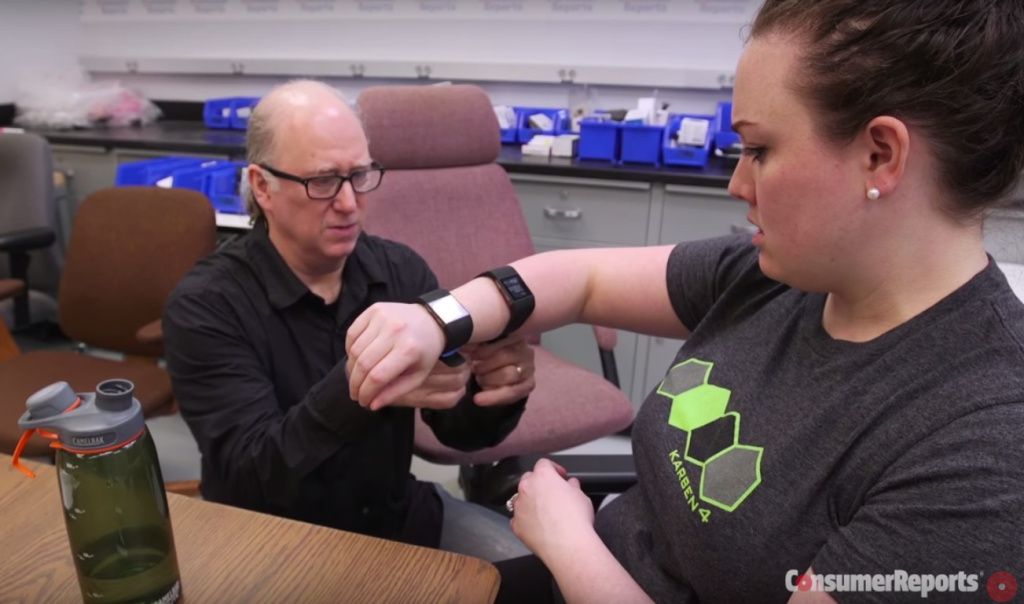Consumer Reports Checks Fitbit Heart Rate Monitors Again
 Earlier this month, a lawsuit from several Fitbit tracking watch owners made the news. In it, three users claimed that the heart rate monitors are inaccurate, and that customers had been misled. Yet our pulse-monitoring colleagues down the hall at Consumer Reports had just tested the same products, and didn’t notice any problems with their heart rate monitoring ability. Had they missed something? They decided to check.
Earlier this month, a lawsuit from several Fitbit tracking watch owners made the news. In it, three users claimed that the heart rate monitors are inaccurate, and that customers had been misled. Yet our pulse-monitoring colleagues down the hall at Consumer Reports had just tested the same products, and didn’t notice any problems with their heart rate monitoring ability. Had they missed something? They decided to check.
The plaintiffs in the lawsuit brought in a board-certified cardiologist to help them compare, but Consumer Reports did something simpler: they used another heart-rate monitor with a chest strap, which was known to be accurate. What they found was that the devices all matched up… except for when one tester wore the less expensive Fitbit device, the Charge HR, up on her forearm instead of down closer to her wrist. Update: We initially got this backwards: the tests found that the Charge HR was more accurate when it was farther up on one tester’s forearm, and less accurate the closer it was to her wrist. That was only during very vigorous exercise, and only happened with one tester.
Was that the problem that the users suing the company encountered? That’s possible, and the question may be answered if the lawsuit progresses. However, we’re not sure that the class action will proceed, since the plaintiffs had all agreed to Fitbit’s terms and conditions, in which the user agrees not to sue the company, including in a class action.
The plaintiffs’ argument is that this information wasn’t disclosed on the outside of the package when they purchased their Fitbits, and they shouldn’t be held to the agreement. If the lawsuit does go forward, it will be an important victory for consumers in our ongoing fight against mandatory arbitration clauses.
Taking the Pulse of Fitbit’s Contested Heart Rate Monitors [Consumer Reports]
Want more consumer news? Visit our parent organization, Consumer Reports, for the latest on scams, recalls, and other consumer issues.

